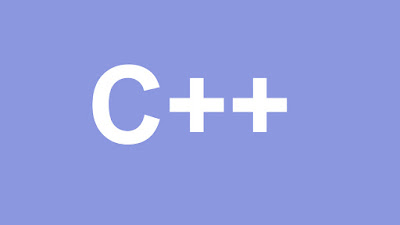C++ Tutorial – Learn C++ Programming with examples
The C++ language is a direct descendant of the C
programming language with additional features such as type checking,
object-oriented programming, and exception handling. You can call it
"better C". Developed by Bjarne Stroustrup.
C++ is a general purpose language. Generic simply
means that it is designed for developing applications in a wide variety of
fields.
C++ Tutorial
Read these
tutorials in the order presented to learn C++ programming. These tutorials
are written for beginners, so you should have no trouble understanding
them without prior knowledge of C++.
Basics
1. First C++
Program – Hello World!
2. Variables and their types
3. Data types
4. Operators in C++
Control Statements
5. If, if..else-if statement
6. Switch Case in C++
7. For loop
8. while loop
9. do while loop
10. Continue statement
11. Break statement
12. goto statement
Functions
13. Functions in
C++
14. Default arguments in Functions
15. C++ Recursion
Arrays
16. Arrays
17. Multidimensional arrays
18. Passing Array to function
19. C++ Strings
Pointers
20. Pointers in
C++
21. this Pointer
OOPs
22. OOPs Concepts
23. Constructor
24. Destructor
25. Structure
26. How to pass and return struct from function
27. Enumeration
28. Inheritance
29. Polymorphism
30. Function Overloading
31. Function Overriding
32. Virtual Function: Run time Polymorphism
33. Encapsulation
34. Abstraction
35. Interfaces – Abstract class
36. Pass and return object from function
37. Friend class and friend Function
Features of C++
1) Better Memory Management - For better memory management, you can dynamically
allocate memory at runtime using C++'s new and delete operators.

